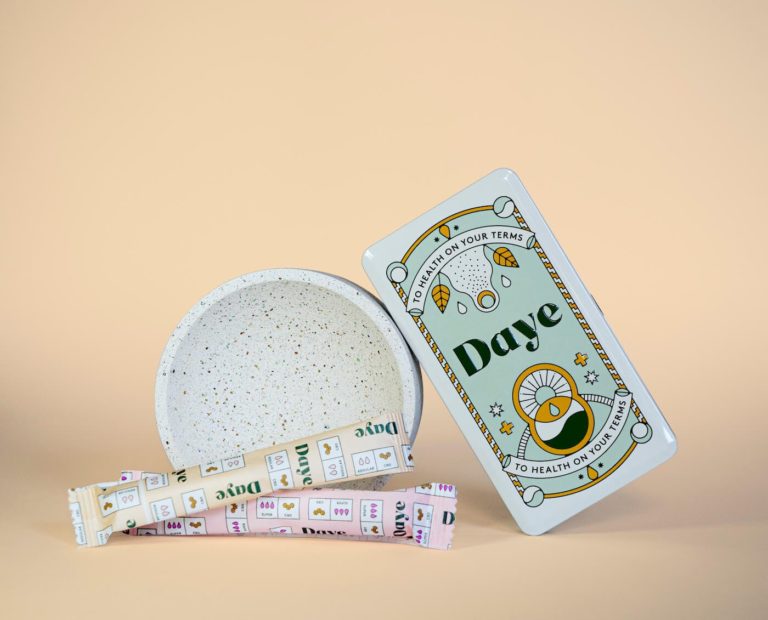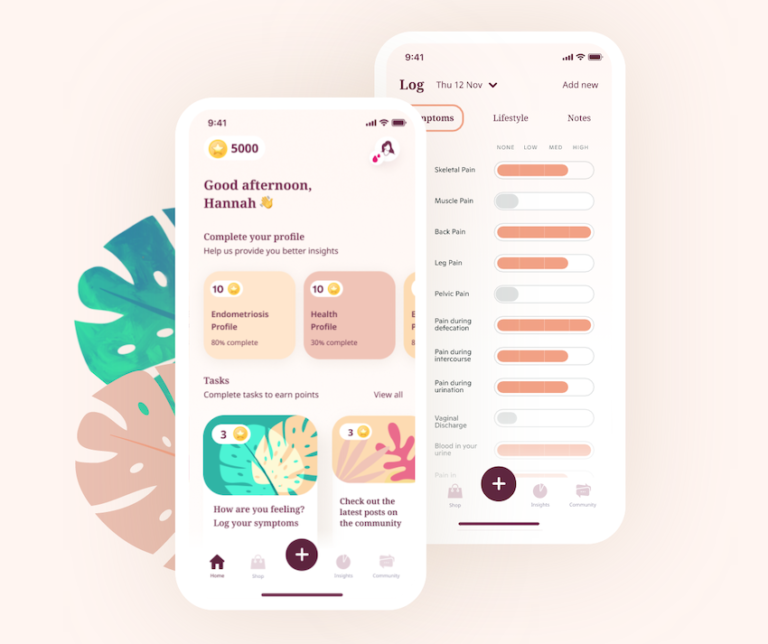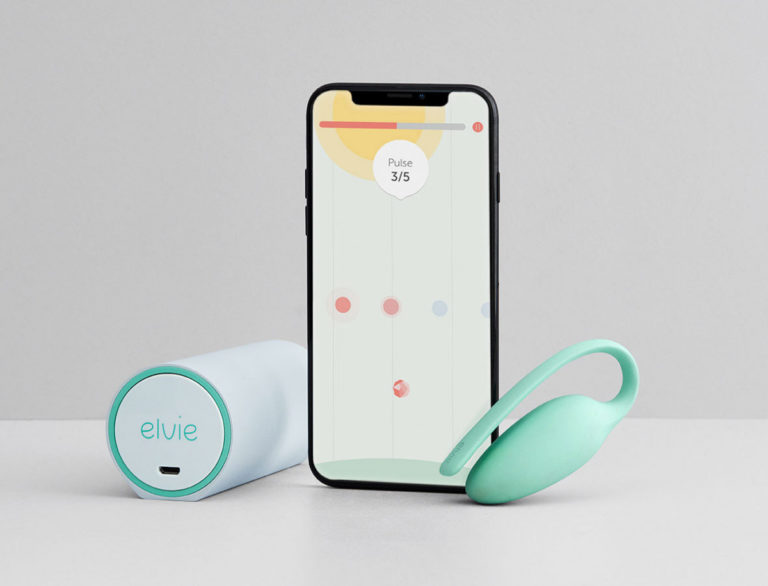Femtech: 17 Startups Closing the UK’s Gender Health Gap

‘Femtech’ refers to technologies specifically focused on women’s health, covering a broad range of areas from hormonal disorders and period pain to birth control, pelvic health, and sexual wellness. Ida Tin, Co-Founder of period-tracking app Clue, is credited with coining the term—so the fact that Clue, a forerunner in female technology, was only founded in 2012 reflects how new the femtech market still is.
Despite representing 51% of the population, women are significantly underrepresented in clinical trials and research. This gender gap is contributing to worse health outcomes for women, with much less known about female health conditions than those that also or only affect men. Endometriosis, for instance, takes an average of seven to eight years to diagnose, whilst figures show that five times more research is carried out into erectile dysfunction (affecting 19% of men) than into PMS (affecting 90% of women).
But whilst the need for gender-specific healthcare is clear, the femtech industry has sparked controversy, with critics arguing that the term reinforces gender stereotypes, could deter male investors, and excludes trans and non-binary individuals. Others suggest that femtech products encourage ‘pink tax’, or gender-based price discrimination, but femtech seeks to address women’s health issues through new product development, as opposed to upcharging on existing products.
Regardless of how you feel about the word, femtech’s rising popularity in VC portfolios is surely a good thing, in the end, as it’s reflective of an increased awareness surrounding gender biases in healthcare. And with the recent launch of FemTech Lab (Europe’s first accelerator for femtech startups, based in London), we expect to see lots more innovative companies emerging in this space in the future. In this piece, we’ve handpicked 17 of the UK’s fastest-growing companies that are developing new technologies in women’s healthcare—and disrupting the digital health, cleantech, artificial intelligence, and wearable technology sectors in the process.
Menstruation
First on our list of innovative femtech companies is Daye. Daye provides monthly subscriptions of period care products, allowing customers to choose from a selection of sustainable, organic tampons (either standard or CBD-infused) and ‘ProViotics’, probiotics for vaginal health. Alongside its subscription boxes, the company’s also investing in projects to overcome gender biases in medical research and product innovation. Founded in 2017, Daye has already raised £5.51m in equity investment, across two funding rounds. Its investors include Index Ventures, Kindred Capital VC, and US firm Khosla Ventures.

Also adopting the subscription service model, fellow femtech startup Freda delivers natural and environmentally-friendly period products. These include eco pads and liners, and biodegradable tampons, made from 100% certified organic cotton. Freda secured a £150k equity fundraising in 2017 and, the following year, attended the Business Growth Programme—a three-month accelerator, managed by London & Partners, focused on SMEs based in the Capital.
Mental health
Femtech isn’t just limited to physical healthcare, with top mental health startup Clementine leading the sector with its female-focused hypnotherapy app. Clementine aims to help women find their inner calm, become more confident, reduce anxiety, and sleep better. Based in Milton Keynes, the company raised a £1m equity funding round in October 2020, from impact venture capital firm Fortunis. It was also selected for the third cohort of We In Social Tech, a six-month accelerator programme, designed for women-led businesses that are using technology to address social challenges.
Clinical diagnostics
Micrima was spun out of the University of Bristol in 2006, to develop and commercialise radar breast imaging technology for cancer detection. Micrima has secured five rounds of equity funding to date, totalling £11m, alongside four Innovate UK grants. Also supported by Innovate UK (as well as the UK Space Agency), clinical diagnostics company DEOS uses satellite and 3G/4G technology to develop mobile radiography systems for fast, low-cost breast cancer screening. The company attended the European Space Agency Business Incubation Centre in 2016, and is now extending its services to other mobile screening programmes, including MRI, CT, and ophthalmology.
Meanwhile, Syrona Health is on a mission to help women, trans, and non-binary people through evidence-based research of endometriosis, fertility, PCOS, menopause, and mental health. Founded in 2018, the virtual health clinic has been described as “the Amazon of gynaecological care”. Its new app, Sora, offers expert insights, online consultations, a range of health tracking and analytics tools, and access to peer support. Syrona recently graduated from the KQ Labs accelerator, a programme designed for early-stage companies in the data-driven health sector. The company has also attended the Panacea Stars, Bethnal Green Ventures, and Cambridge Judge Business School’s Pre-Accelerate programmes.

Hormone health
Femtech startup Moody has developed a web platform and mobile app, Moody Month, to help women better understand and manage their hormones, cycles, and moods. Since launching in 2016, the company has secured £2.15m in equity funding, across six rounds—the latest of which raised £142k via crowdfunding platform Crowdcube. Hormona is also operating in the hormone health space, having set out to address hormonal imbalances through daily tracking and data insights. Founded in October 2020, the company recently secured a £187k equity fundraising, and users can now sign up for early access to its website.
Fertility
Apricity operates a virtual fertility clinic, and is using artificial intelligence to maximise chances of IVF success. The company secured a £5.35m equity funding round in 2019 from AXA’s Kamet Ventures fund. Meanwhile, Fertility Focus (trading as OvuSense) has designed an app and medical sensors to support fertility monitoring, through ovulation and cycle tracking, and screening for common ovulation issues. The University of Bristol spinout has a long-list of notable investors, including Envestors, SyndicateRoom, Minerva Business Angel Network, Angel CoFund, Foresight VCT, and Midven’s Exceed Partnership Fund and Early Advantage Fund.
Meanwhile, Hertility Health is enabling women to track their reproductive health through its app and at-home fertility and hormone testing. The company attended P4 Precision Medicine’s six-month accelerator programme in 2019. Parla (previously Adia) has developed a similar online platform, providing at-home fertility tests, advice, and access to fertility experts and therapists. Parla secured a £64.2k Innovate UK grant last year, and has so far raised two rounds of equity investment, with participation from the London Co-Investment Fund. It also attended the Zinc Mission 1 accelerator programme in 2017.
Pregnancy and postnatal care
Founded in 2019 by Olympic heptathlon gold medallist Jessica Ennis-Hill, Jennis provides pregnancy, post-natal, and cycle-based fitness regimes via its mobile app. Jennis has been designed to close the fitness industry’s gender data gap, helping women to train, eat, and sleep for optimised hormone health. The company has so far raised two rounds of equity investment, totalling £750k.
Then there’s Elvie, operating primarily in the breastfeeding space and aiming to improve women’s lives through smarter technology. Its silent, wearable breast pump and Kegel trainer have been developed to link back to a mobile app, so they can monitor milk volume and exercises, and track activity history. Since launching in 2013, the company has secured seven Innovate UK grants, as well as three equity funding rounds, amounting to £37.4m—investors include Octopus Ventures, AllBright, and Impact Ventures UK. Elvie has also attended numerous accelerators, including Tech Nation’s Upscale and Future Fifty programmes, and was named on four different high-growth lists in 2020 alone.

Menopause
Balance App is helping women to get a fast diagnosis and appropriate treatment for perimenopause and menopause. Users can track their symptoms, access personalised content, share stories with their community, and download their health report to show healthcare professionals. Since launching in July 2020, the company has raised £50k in equity investment and its app has been downloaded by over 180k women in more than 100 countries.
Online menopause clinic Bia Care also provides specialist support and advice for women experiencing symptoms. Bia Care attended Zinc Mission 3 (Later Life), an accelerator programme focused on startups aiming to provide a high quality of life to people over 70. Seed-stage company Vira Health is a fellow graduate of this programme—founded in April 2020, it has developed Stella, an app for managing symptoms of menopause (which is due to launch this summer). The company raised a £1.5m equity funding round in August last year.
Original Article – https://www.beauhurst.com/blog/uk-femtech-startups/

